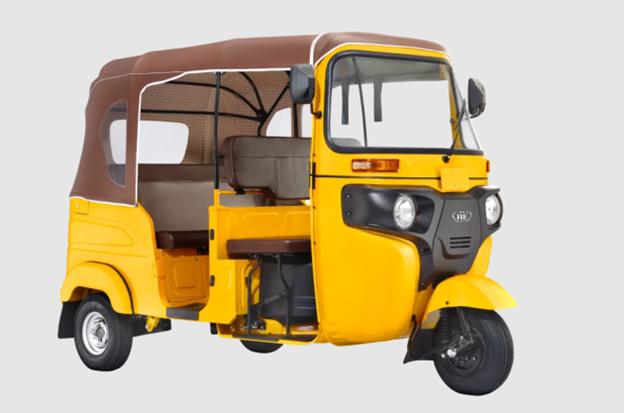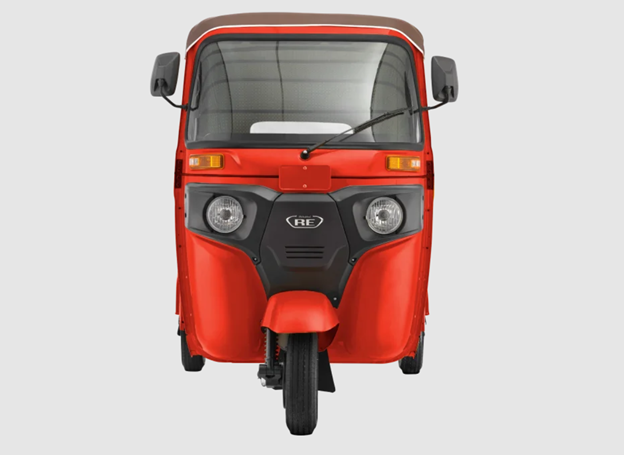
Choose your Country

Choose your Country

Across Kenya, businesses are moving forward—literally—thanks to Bajaj three-wheelers. These versatile machines, commonly known as tuk-tuks, have become the go-to choice for entrepreneurs, logistics providers, and urban transport operators who need more than just wheels. They need results.
If you're searching for a smart way to deliver goods, ferry passengers, or launch a service business, this guide will help you understand why a Bajaj tuk-tuk is the right investment.
Tuk-tuks have revolutionised last-mile transport and micro-enterprise operations in Kenya. Whether navigating congested streets in Kisumu or traversing rural tracks in Meru, these three-wheelers offer unmatched versatility.
According to KIPPRA, the informal transport sector, including tuk-tuks, contributes significantly to Kenya's GDP. With more than 10,000 tuk-tuks registered in urban counties alone, the demand continues to grow.
They also serve as a gateway to employment for many youth and women. In towns like Nakuru and Nyeri, tuk-tuks provide hundreds of daily trips, connecting markets, homes, and workplaces. These vehicles are becoming the backbone of local economies that rely on frequent and affordable mobility.
Moreover, their compact build and turning agility allow them to access narrow roads and crowded estates where larger vehicles struggle, ensuring accessibility even in informal settlements.
Tuk-tuks are not just filling transport gaps, they're transforming how communities connect.
Bajaj is a name trusted across Africa for a reason. Here’s what makes their tuk-tuks ideal for Kenyan conditions:
In short, more than being affordable to buy, they’re affordable to run.
Bajaj three-wheelers are also designed with the operator in mind: ample legroom, clear visibility, and well-positioned controls reduce fatigue even after a full day's shift. The comfort boost translates to better focus, fewer breakdowns, and more satisfied passengers or customers.

Rather than offering a broad line-up, Bajaj focused on creating one with exceptional features. That is when the Bajaj RE 4S Petrol came to fruition!
This three-wheeler tuk-tuk is designed to meet the specific needs of urban and peri-urban transportation in Kenya. Whether you’re carrying passengers through traffic in Nairobi or delivering produce in bulk on dirt roads outside Eldoret, the RE 4S delivers with resilience.
Here’s how:
The RE 4S comes equipped with:
While there’s only one model, the RE 4S can be adapted to suit multiple business types. Operators across Kenya have retrofitted their RE 4S units in the following ways:
In essence, the RE 4S adapts to your business, not the other way around.
The RE 4S isn’t just a factory spec sheet. It’s a daily revenue generator in cities like Mombasa, Kisumu, and Nyeri. Riders report minimal downtime, easy repairs, and consistently high trip counts.
You don’t need options when you already have the optimal solution.
Running motor taxi or tuk-tuk services in Kenya isn’t limited to everyday mobility. These vehicles support everyday livelihood, depending on the profitability every single day.
Bajaj three-wheelers reduce idle time with reliable engines and easy starting. Repairs? Quick and affordable. Downtime? Practically none if maintained right.
And let’s talk running costs. Compared to most small vans, tuk-tuks save on fuel, licensing, and service. Over a month, that adds up to serious savings—and more take-home pay. Real-world users report 20–30% savings on fuel expenses alone versus four-wheel counterparts, with lower tyre wear and cheaper insurance premiums.
For operators handling up to 20 trips a day, the compounding effect of savings and low downtime can mean thousands more in net income every month. That’s just transformational if you ask!
Bajaj Kenya supports you before and after sales. From Mombasa to Kakamega, authorised workshops, mobile mechanics, and genuine spare parts are never far. Plus, you can easily find your nearest dealer, helping reduce downtime to manifolds.
Need support, maintenance tips, or a quick part swap? Just contact the Bajaj team. We’ve got your back!
Additionally, many microfinance lenders now collaborate directly with Bajaj to offer structured ownership plans, making it easier for startups and small businesses to scale their operations without incurring major upfront investment.
Whether you’re transporting five people or 50 parcels a day, a Bajaj tuk-tuk can be the reason your business stays ahead.
Get the facts. Make the move. Let your three wheels earn more every day.
Start your journey today with Bajaj Kenya.
1. Is a Bajaj tuk-tuk fuel efficient?
Yes! Bajaj Tuk-tuks come with an 8-litre fuel tank and are supported by Bajaj’s patented DTS-i technology, which makes them exceptionally fuel efficient.
2. Where can I buy a Bajaj tuk-tuk in Kenya?
You can contact us directly at +254 774170890 or email us at info.kenya@bajajken.com for more information.
3. What affects the new Bajaj tuk tuk price in Kenya?
Bajaj Tuk-tuk prices vary in Kenya depending on model type, add-ons, and local taxes. It is best to visit your closest Bajaj authorised dealer and confirm the final prices.
4. Are spare parts readily available?
Yes. Bajaj has a strong network across Kenya, offering genuine parts and trained service teams.
One Bike, Many Jobs: How Boxer Supports Everything from Boda Boda to Agro-Deliveries
Know More
Powering Small Businesses: How Tuktuks are Driving Entrepreneurship in Nairobi and Western Kenya
Know More
The Backbone of the Rift Valley: How Motorcycles Empower Rural Kenya
Know More
5 Common Mistakes That Shorten Your Boxer’s Lifespan (And How to Avoid Them)
Know More
How the 5-Speed Gearbox Gives Boxer Riders a Real Edge in Kenya
Know More
From Shock Absorption to Frame Strength: A Deep Dive into Boxer 150 X’s Tough Build
Know More
Discovering the Significance of Three-Wheeler Tuk-tuks for Urban Accessibility in Kenya
Know More
Heavy-Duty Power for Heavy-Duty Tasks: Why the Bajaj Boxer 150 HD is a Game-Changer
Know More
How Bajaj Bikes Drive Economic Development in Kenya
Know More
Why Small Business Owners Trust the Boxer 125 HD
Know More
Maintaining Your Tuk-tuk in Kenya: Essential Tips for Longevity and Efficiency Across Regions
Know More
From 100cc to 150cc: How to Choose the Best Bajaj Boxer Range for You?
Know More
Why Tuktuks Are the Smartest Way to Deliver in Kenya’s Towns
Know More
Power That Pays Off: Why the Boxer 125 HD Is Your True Income Enabler
Know More
Understanding How the Bajaj Boxer Masters Challenging Conditions
Know More
Bajaj Boxer 100 HD ES: The Flexible Performer for Everyday Business
Know More
Mastering Your Bajaj Boxer: A Rider’s Guide to Enhanced Performance
Know More
Boxer HD Series Breakdown: Which Model Fits Your Hustle?
Know More
The Tuktuk Experience: Why Tuktuks Are Kenya’s Smartest Urban Transport Tool
Know More
The Only Bike You’ll Ever Need: How Bajaj Boxer Adapts to Any Job in Kenya
Know More
Boxer 100cc Series: The Smart Pick for Reliable, Everyday Power
Know More
Why the Boxer 125 Is the Smartest Bike for Kenya’s Boda Boda Business
Know More
Ride Rough, Stay Steady: Boxer’s Suspension System Explained
Know More
Mastering the Metropolis: Selecting the Right Motorbike for Urban Utilities
Know More
The Bajaj 150 X: The Perfect Load Carrier for Rough Roads and Long Rides
Know More
From Thika Roads to Maasai Mara Trails: Bajaj Motorcycles, Kenya's Reliable Workhorse
Know More
The Social Impact of Motorcycles in Western Kenya's Communities
Know More
Navigating Nairobi's Urban Pulse: Why Bajaj Motorcycles Are the City Rider's Choice
Know More
Why Every Delivery Rider in Town Should Be Eyeing the Boxer 125 HD
Know More
Buying a Motorcycle in Nairobi? Your Guide to Making a Smart Selection
Know More
Why the Bajaj Boxer Motorcycle is the Undisputed King of Tough Terrains
Know More
From Nairobi's Hustle to Rural Paths: The Bajaj Boxer, Kenya's Unsung Hero
Know More
Powering the Rift Valley: Why the Boxer 150cc is the Go-To for Kenyan Farmers and Traders
Know More
Which Bajaj Motorcycle is Right for Your Business in Kenya? A Comprehensive Buyer's Guide
Know More
Bajaj vs. Competitors: Why Bajaj Dominates the Kenyan Motorcycle Market
Know More
Fuel Efficiency and Durability: The Bajaj Advantage for Kenyan Riders
Know More
Maximising Your Boxer 150's Performance and Longevity: Essential Tips
Know More
Bajaj Boxer 125 vs. Competitors: A Head-to-Head Battle for the 125cc Crown
Know More
Second-Hand vs. Brand New Bikes in Kenya: Which One Should You Buy?
Know More
A Deep Dive into the Bajaj Boxer 100 HD ES Comfort Features
Know More
Why Every Smart Driver is Upgrading to the New Bajaj RE 4S Petrol
Know More
Built to Outlast the Daily Hustle: The New RE’s Frame, Finish, and Features
Know More
Ride-Hailing at Scale? Here’s Why the RE 4S is the Backbone You Need
Know More
5 Reasons Ride-Hailing Fleets Should Switch to the New Bajaj RE 4S
Know More
5 Reasons Why Boxer Is the Best Mototaxi Bike in Kenya
Know More
What’s the Ideal Boxer Model for You? A Buyer’s Guide
Know More
A Beginner’s Guide to Boxer Motorcycle Servicing
Know More
Your First Bike? Here’s Why Boxer Is the Right Choice
Know More
Types of Motorbikes in Kenya: A Complete Guide for Buyers
Know More
How to Maintain Your Boxer Motorbike for Long-Term Use
Know More
The Economic Impact of Boxer Bikes on Village Mobility
Know More
What Makes Boxer Bikes Ideal for Agricultural Transport?
Know More
Boxer 100 Series: The Best Motorcycles for Light Commercial Use
Know More
Best Boxer Bike in Kenya for Rural Transport in 2025
Know More
Exploring the Durability of Boxer Bikes on Kenyan Roads
Know More
How Boxer Bikes Help Small Business Owners in Kenya
Know More
Why Boxer 100 HD Is the Most Fuel-Efficient Utility Bike
Know More
Why Boxer 100 HD ES Is Perfect for City and Village Use
Know More
Boxer 100 HD ES: Durability, Comfort, and Performance Combined
Know More
Maintenance Tips to Keep Your Bajaj Boxer 125 HD Running Strong
Know More
Why Mototaxi Drivers Prefer Boxer 100 KS
Know More
Choosing Between Boxer 100 KS and Boxer 100 HD: A Practical Guide
Know More
Same Spirit, Two Styles: Exploring the Boxer 100 KS and HD ES
Know More
The Boxer 100 KS: Affordable Mobility for First-Time Buyers
Know More
The Boxer 125 X: A Flexible Workhorse for All Terrains
Know More
How the Boxer 125 X Offers Flexibility for Small Businesses
Know More
How Boxer 150 HD Handles Load Like a Pro
Know More
Why the Boxer 150 HD Is a Status Symbol in Transport Circles
Know More
How Boxer 150 X Helps Mototaxi Operators Maximise Earnings
Know More
Top Features That Define the Boxer Motorcycle
Know More
The Champion of Rough Roads: Boxer 150 X Review
Know More
Why the Boxer 150 X Dominates Africa’s Toughest Terrains
Know More
How Boxer Bikes Are Powering Kenya’s Economy
Know More
Getting to Know the Heavy Duty Boxer 150cc Range: Features and Benefits
Know More
Bajaj Boxer for Heavy-Duty Tasks: Rugged, Reliable, and Ready to Roll
Know More
Boxer 150 HD: Built Tough for Long Routes and Heavy Loads
Know More
Boxer 150 HD Maintenance Tips for Rural Riders
Know More
Value Meets Reliability: Why Bajaj Bikes Are Perfect for Kenyan Roads
Know More
5 Reasons the Boxer 150 X Is Built for Boda Boda
Know More